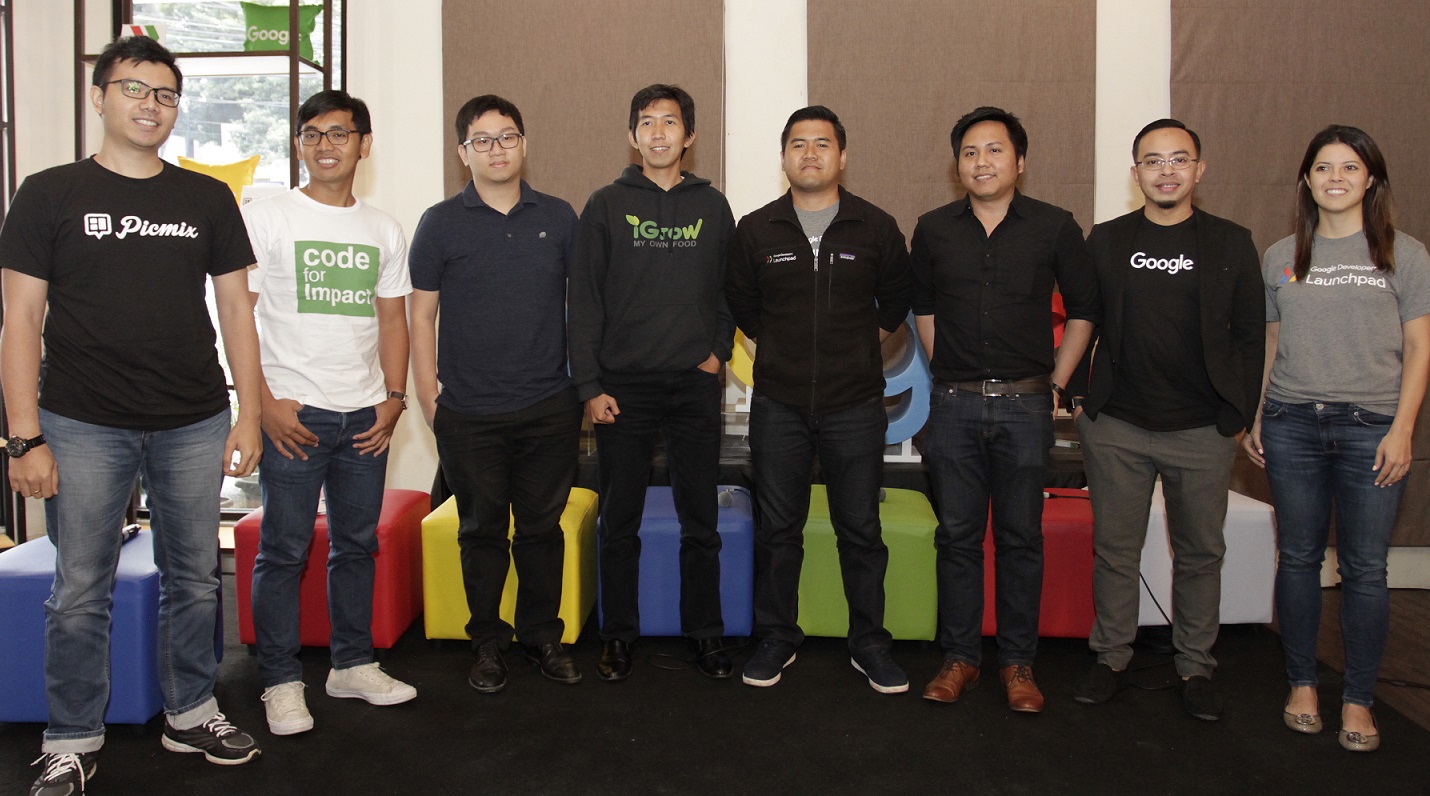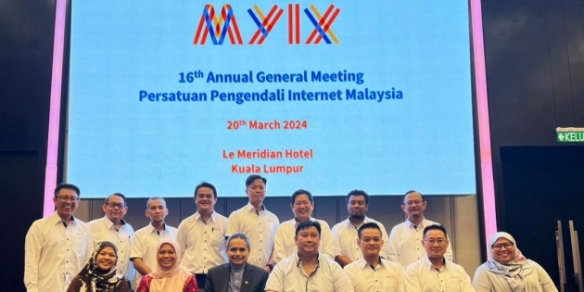Lessons from the Google Launchpad Accelerator programme
By Masyitha Baziad March 17, 2017
- Receive intensive mentorship, market access, new community links and equity funding
- Startups admit they should have paid more attention to user experience rather than tech
SIX Indonesian startup entrepreneurs who participated in Google Launchpad Accelerator Batch 3 in February this year, share their experience in joining the programme with DNA.
Under the programme, selected late-stage startups that focus on mobile development from several countries receive two-weeks of intensive mentoring, and US$50,000 in equity-free funding each. They also receive six months’ continuing mentorship after returning to their home countries.
In its third batch from Indonesia, the six are mobile shopping cashback service Snapcart; social media application Qlue; agriculture marketplace iGrow; online accounting software Jurnal; microfinance service Ruma; and picture-sharing social media PicMix.
The experience was an eye opener with some startup founders and executives saying they got more than just mentorship. They also gained new networks and potential new market access.
The startups will use the US$50,000 equity-free funding for product and software development, funding research and development facility, and experiments in risky strategy.
Starting with Brazil, India, Indonesia, and Mexico in 2015, last year the programme accepted applicants from Argentina, Colombia, the Philippines, Thailand, and Vietnam.
This year the programme expands its reach and is accepting applicants from Europe and Africa including the Czech Republic, Hungary, Poland, Kenya, Nigeria, and South Africa.
“We are committed to help 100,000 Indonesian mobile developers until 2020 with various programmes including Launchpad Accelerator, and since the programme is very well received, we have decided to add other countries yearly. This year for Class 4, we are also accepting applicants from Malaysia and Chile,” says Google developer relations program manager Erica Hanson.
Registration for Class 4 of the programme is open and the deadline is April 24, at 4pm Greenwich mean time (GMT).
This batch enjoyed quite a few improvements especially in the number of mentors which hit 150, as well as a dedicated Launchpad space in San Francisco. The first and second batch participated in the programme in Mountain View.
Lessons learned
When asked about what the startup founders and executive would do differently after the programme, the answers are quite similar, revolving around understanding what users want, and focusing on key success matrix.
“If we could restart our process all over again, we definitely would emphasise The Product Design Sprint (PDS) from the very beginning, make sure we have a good minimum viable product (MVP) and improve our product based on user experience as well as user review and feedback.
“All in all it has to be more user-driven, rather than tech-driven. We have to understand user behaviour, and build the product based on what users like, not what we like,” PixMix co-founder and head of strategy and product Sandy Colondam says.
The Product Design Sprint (PDS) is a technique and framework for teams to solve and test design problems, usually in two to five days, resulting in a prototype and validation of the idea and/or design.
Qlue back-end lead Andhika Adhitama concurs, saying that even if there was some research done before the launch of a product, the research itself was mostly based on assumptions of what people like, not the reality.
“PDS will help you from the very beginning to see whether your product or idea is a good one and it will help you gain the insights you need,” he adds.
Ruma chief executive officer Aldi Haryopratomo says that they not only need to build user-driven products, but must also to engage customers and the community to develop the product.
“I remember last year during Ramadhan, one lady in our community told us that they want non-stick pans to cook Rendang (spicy meat dish) since the aluminium pan is actually not ideal.
“We have such a demand for it that we are able to negotiate with the distributor to cut the non-stick pan price by half and distribute it to our customers. At that time, I wondered why I didn't include my communities since the beginning as their opinions are actually our treasure,” he says.
Having an engineering background, Jurnal founder and CEO Daniel Witono says that he built the product first, and that was a mistake.
“Rather than come up with solutions first, you should just go out and talk to your potential customers and see what their problem is. Then build the solution based on that,” he adds.
In addition, iGrow founder and CEO Andreas Sanjaya says that he would also find one substantial matrix to grow his startup.
“In iGrow back then, we used to focus only on how much investment we could raise. It was not a good matrix to keep the company growing. So, try to find the most suitable matrix for your business,” he says.
Although a former professional in the fast-moving consumer goods (FMCG) sector, Snapcart founder and CEO Reynazran Royono says that they were also focusing on a wrong matrix in the beginning.
“We have people who had experience in FMCG companies, but all we wanted to focus on at that time was generating revenue. One way was by making sure our mobile apps have the best rating on PlayStore.
“Little did we know, the popularity opened us up to fraud, in the end causing garbage in garbage out or data that we cannot use. We wish that we had focused on the security aspects and ensured that there was no loophole for fraud in our system, so that the data we receive will be a good data that we can sell to our partners,” he admits.
Challenges remain
While the potential for Indonesian startups to be successful is high, there are still challenges that mentors see as are holding back the potential, including the unwillingness to share and tendency to be secretive.
“The culture in San Francisco is open. What we see from the Indonesian startups is that they tend to keep everything to themselves, they do not want to share their technology, experience, and best practice with other startups,” Google Launchpad global mentor in UI/UX, Borrys Hasian explains.
Asked if he knew why, Borrys says that no reason should be acceptable, as the collaborative effort is highly needed in order to push the country’s agenda to be the biggest digital economy in the region in 2020.
“We cannot have the mindset that if we want to be big, we become big alone. This is the wrong mindset, if you want to grow, you need to be open, you need to really embrace collaboration not only as a buzz-word,” he adds.
He also says that while the individual skills of startup founders from Indonesia are great, the approach of developing products still needs improvement, as they tend to look at the technology side rather than at user-experience.
Borrys also brings up language issues that often cropped up in the mentoring sessions, saying that Indonesians need to improve their communications skills, should not be afraid to speak up, and be confident.
Related Stories:
Six Indonesian startups in Batch 2 of Google’s Launchpad
Google welcomes the third class of Launchpad Accelerator
For more technology news and the latest updates, follow us on Twitter, LinkedIn or Like us on Facebook.



